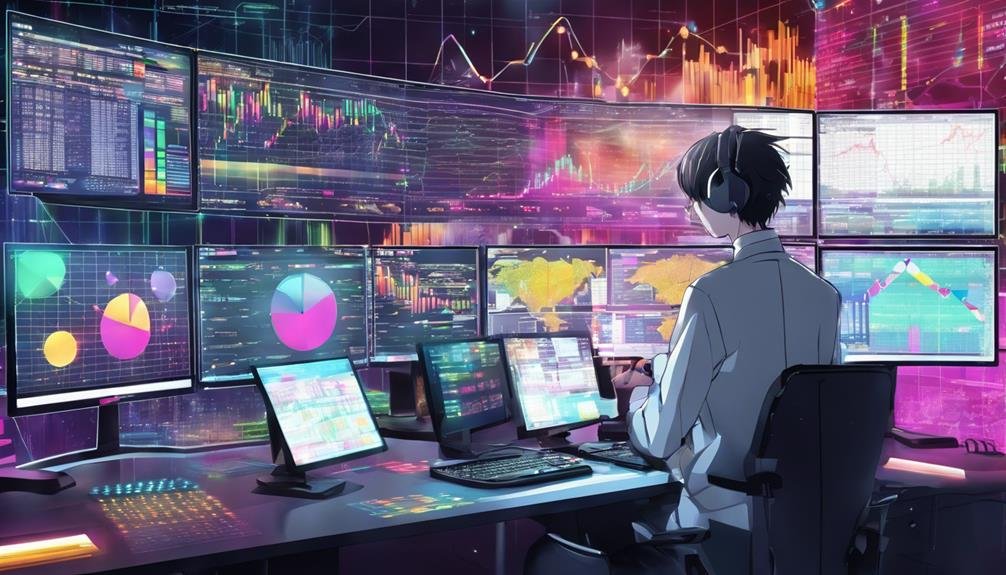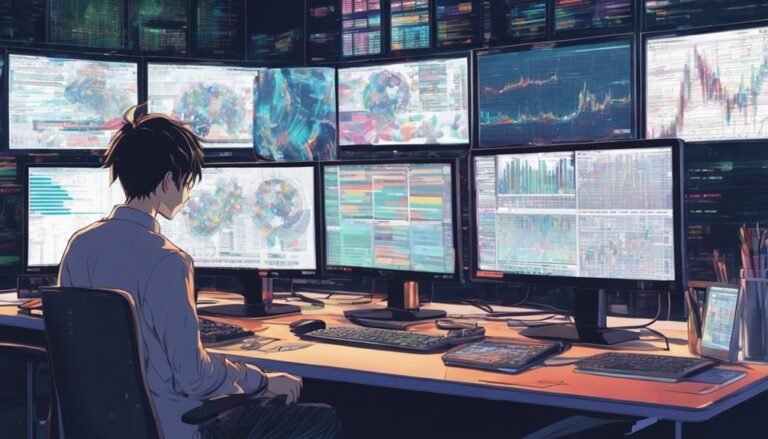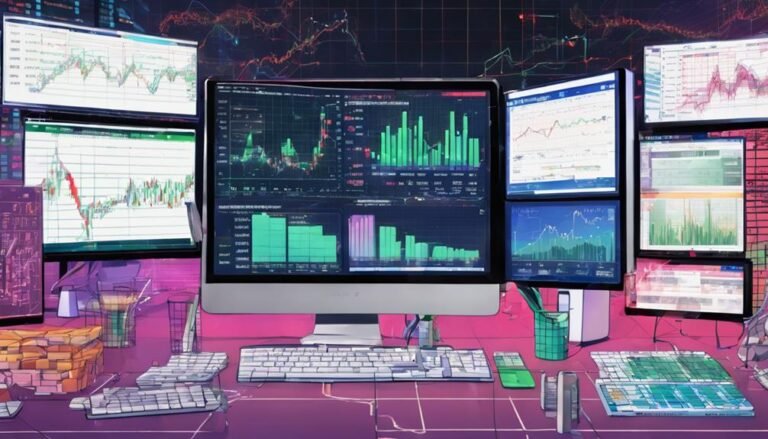Artificial Intelligence Trading Systems
Have you ever wondered how Artificial Intelligence trading systems are revolutionizing the financial markets?
These advanced technologies are reshaping the way trading is conducted, providing traders with powerful tools that can analyze vast amounts of data in real-time.
The potential for increased efficiency and profitability in trading operations is immense.
But how exactly do these systems work, and what sets them apart from traditional trading methods?
Join us as we explore the intricate world of AI trading systems and uncover the secrets behind their growing popularity and success.
Key Takeaways
- AI trading systems offer precision, efficiency, and adaptability to new data for optimal decision-making.
- Machine learning in trading provides insights, predicts market movements, and adjusts to real-time conditions.
- AI-driven risk management optimizes diversification, preserves capital, and enhances returns with informed strategies.
- Future trends in AI trading involve refining algorithms, accurate predictive analytics, and empowering traders with advanced tools.
Evolution of AI in Trading
Analyzing the historical progression of artificial intelligence in trading reveals a transformative journey marked by rapid advancements and innovative applications. AI algorithms have revolutionized trading strategies by enabling machines to analyze vast amounts of data at speeds impossible for humans to match. These algorithms utilize complex mathematical models to identify patterns, trends, and anomalies in financial markets that human traders might overlook.
One key aspect of AI algorithms in trading is their ability to adapt and learn from new information. Through machine learning techniques, these algorithms can improve their performance over time by adjusting their strategies based on past outcomes. This adaptive nature allows AI systems to continuously optimize trading decisions and respond to changing market conditions swiftly.
Furthermore, AI algorithms have the capacity to execute trades with precision and efficiency, minimizing human errors and emotions that often influence trading decisions. By incorporating AI into trading strategies, investors can leverage advanced technology to enhance decision-making processes and potentially achieve better outcomes in the dynamic and competitive world of financial markets.
Advantages of AI Systems
AI systems offer a strategic edge in trading by enhancing decision-making processes with precision and efficiency. These systems are designed to analyze vast amounts of data at speeds impossible for humans to match. By leveraging complex algorithms, AI can quickly identify patterns, trends, and correlations that may not be readily apparent to human traders. This leads to improved decision-making, as AI systems can make informed predictions based on historical data and real-time market conditions.
One of the key advantages of AI systems is their ability to operate 24/7 without fatigue or emotions clouding judgment. This continuous operation guarantees that opportunities aren't missed, and trades can be executed promptly based on pre-defined criteria. Additionally, AI systems can adapt and learn from new data, further improving their decision-making abilities over time.
Regarding efficiency, AI systems can process information at a speed far surpassing human capabilities. This increased efficiency translates to quicker trade execution, reduced latency, and the ability to handle multiple tasks simultaneously. Overall, the advantages of AI systems in trading lie with their capacity for improved decision-making and increased efficiency.
Machine Learning in Trading
Machine learning plays a pivotal role in modern trading strategies, revolutionizing how financial markets are navigated and decisions are made. By utilizing algorithmic strategies and predictive modeling, machine learning algorithms can analyze vast amounts of data to identify patterns and make informed predictions about future market movements. Here is an example of how machine learning can be applied in trading:
| Data Type | Analysis Method | Outcome |
|---|---|---|
| Market Prices | Regression Analysis | Predict Future Prices |
| News Headlines | Sentiment Analysis | Impact on Stock Value |
| Trading Volume | Clustering | Identify Market Trends |
These examples illustrate the diverse applications of machine learning in trading. Algorithmic strategies powered by machine learning can adapt to changing market conditions in real-time, providing traders with valuable insights to optimize their decision-making process. Predictive modeling allows traders to foresee potential market movements, enabling them to execute trades more effectively and capitalize on opportunities as they arise.
Risk Management With AI
Utilizing advanced algorithms, artificial intelligence systems are instrumental in effectively managing risks within trading environments. When it comes to risk management with AI, several key factors play an important role:
- Portfolio Diversification: AI can analyze vast amounts of data to optimize portfolio diversification, spreading investments across different assets to reduce overall risk exposure.
- Algorithmic Strategies: AI trading systems can implement complex algorithmic strategies to automatically adjust positions based on market conditions, helping to mitigate risks and enhance returns.
- Capital Preservation: Through real-time monitoring and analysis, AI can help in preserving capital by setting stop-loss levels and dynamically adjusting positions to prevent significant losses.
- Volatility Analysis: AI algorithms excel at analyzing market volatility patterns, allowing traders to make informed decisions on risk management strategies based on the current market conditions.
Future Trends in AI Trading
In the domain of automated trading systems, the evolution of artificial intelligence is shaping future trends with unparalleled sophistication. As AI continues to advance, the future of AI trading holds exciting prospects. One key trend is the refinement of algorithmic strategies and trading algorithms. AI's ability to analyze vast amounts of data in real-time enables the development of more complex and effective trading algorithms that can adapt to changing market conditions swiftly.
Additionally, predictive analytics is set to play an essential role in the future of AI trading. By utilizing historical data and advanced statistical algorithms, AI trading systems can forecast market trends with greater accuracy. This predictive capability empowers traders to make informed decisions and capitalize on emerging opportunities in the market.
Conclusion
You may think that artificial intelligence trading systems are the future of financial markets, but remember, even the most advanced algorithms can't predict everything.
While AI offers many advantages in trading, it's important to remember that human intuition and experience still play a vital role.
So, while AI can enhance decision-making and streamline processes, don't forget to trust your own judgment and instincts when moving through the unpredictable world of trading.







